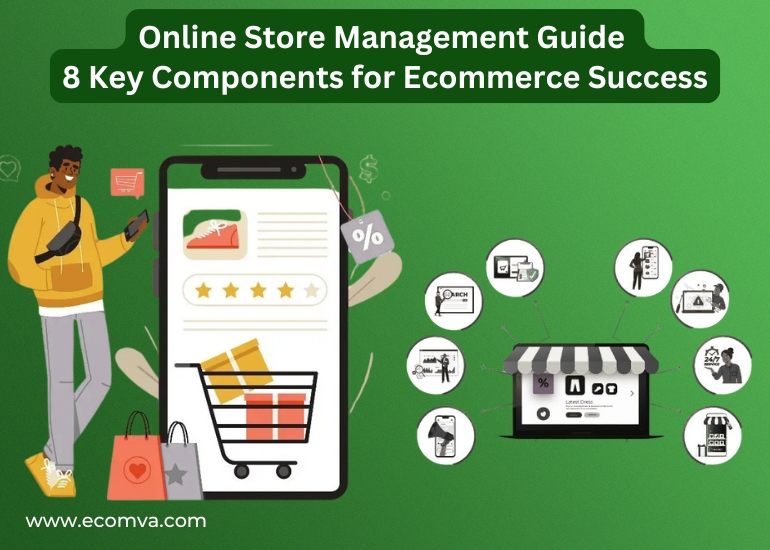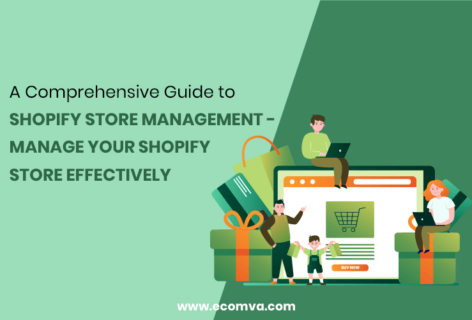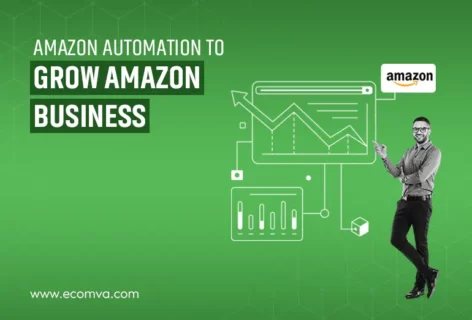Online Store Management Guide 8 Key Components for Ecommerce Success

Mistakes in an online store can show up anywhere — a broken checkout button, a shipping delay, or outdated product details. Each of these issues leaves an impression on customers, and sometimes they don’t get reported right away. Many stores only find out after a negative review or a drop in sales. Proactive Online Store Management prevents these setbacks. It sets a routine for checking the store’s health, catching issues before they become problems, and creating a reliable experience for shoppers.
So, what makes an ecommerce store successful in practice? It comes down to managing a few critical areas with care. Let’s break down the essentials you need to get right from the start.
What is Important for Ecommerce Success?
1. Product Listings Accuracy
Your product listings influence your sales, search results, and return rates. They need to be accurate and complete at all times. This includes:
- Properly formatted titles
- Clear feature highlights in bullet points
- Updated product descriptions
- Correct pricing
- Functional image galleries
- Proper categorization and tags
Missing or incorrect data can reduce buyer trust. Listings must also meet platform-specific rules, especially on Amazon or Walmart.
A store management virtual assistant can handle regular updates and new product uploads. They’ll follow guidelines, audit listings, and prevent customer confusion.
2. Inventory Tracking & Replenishment
Inventory accuracy keeps orders flowing. You should always know what’s in stock, what’s running low, and what’s not selling. Delayed restocking results in lost sales and lower search rankings.
Use tools like online store inventory management software to streamline this process. Software options such as Zoho Inventory, Skubana, and Sellbrite allow easy syncing with your store.
Here’s a basic inventory routine table:
| Task | Frequency | Who Manages |
|---|---|---|
| Stock level review | Daily | Virtual Assistant or Inventory Tool |
| Reorder point alerts | Real-time | Inventory Software |
| Inbound stock updates | On delivery | Assistant |
| Product retirement review | Monthly | Assistant + Reports |
By combining software and support from a store management virtual assistant, your inventory stays balanced. You won’t oversell, and you’ll reorder before running out.
3. Order Processing & Fulfillment
When a customer places an order, several steps need to happen:
- Order confirmation
- Payment check
- Packing slip generation
- Label creation
- Product picking and packaging
- Courier booking
- Tracking info update
- Shipping notification sent to customer
This is done daily and must be smooth every time. A virtual assistant for ecommerce store can take charge of order queues and keep them under control. They also ensure customer dashboards are updated with tracking numbers and status updates.
If multiple platforms are in use (e.g., Shopify and Amazon), a centralized order system should be used.
4. Customer Support
Customer messages often include questions like:
- Where is my order?
- Can I change the delivery address?
- How do I return this item?
- When will you restock?
Fast response improves customer satisfaction. Delayed replies often lead to cancellations or disputes.
A store management virtual assistant can manage customer queries through chat, email, and messaging platforms. They should follow these guidelines:
- First reply within 2 hours during business days
- Tone must stay professional and helpful
- The escalation process must be defined
- Templates should be used for FAQs
- All responses must be logged
At EcomVA, our trained VAs manage customer support operations across different time zones and platforms.
5. Return & Refund Management
Returns must be handled quickly and fairly. Customers look for a smooth experience, especially if they’re unhappy with the product.
A proper return management flow includes:
- Displaying return rules clearly on product pages
- Receiving the return request through email or form
- Verifying order details and item condition
- Logging reason for return (for business review)
- Issuing a refund to original payment method
- Updating inventory if the item is restockable
Your VA can follow return guidelines and ensure refunds go through the correct method. Logging return reasons helps identify repeat product or supplier issues.
6. Platform & Storefront Maintenance
Most store owners forget to check their site health regularly. That causes bugs, outdated features, and checkout problems.
Daily, weekly, and monthly maintenance helps avoid this. Tasks include:
- Fixing mobile layout issues
- Updating themes, apps, and plugins
- Testing checkout flow
- Checking broken links or missing images
- Speed test checks
- Reviewing third-party tool integration (e.g., reviews, payment, shipping)
If you use Shopify, this is where Shopify Store Management Services come in handy. Our team at EcomVA works with Shopify Plus and Basic stores and handles backend settings for better performance.
7. Data Reporting & Store Analytics
Every ecommerce store needs tracking, not just of sales, but of operations.
Here’s a sample report structure:
| Metric | Checked | Used For |
|---|---|---|
| Total sales | Daily | Performance check |
| Best-selling products | Weekly | Plan future campaigns |
| Cart abandonment rate | Weekly | Fix funnel issues |
| Order fulfillment time | Weekly | Identify delays |
| Support ticket volume | Weekly | Improve service quality |
A virtual store management assistant can generate these reports using platform data and Google Analytics. They summarize insights and notify you about trends or problems. This helps you focus on actions, not admin work.
8. Security & Access Management
Your store needs strict control over who can access sensitive information.
Steps to secure store operations:
- Use a password manager (e.g., LastPass, 1Password)
- Assign limited permissions to VAs and staff
- Rotate passwords every 30–60 days
- Keep two-factor authentication active
- Audit access logs regularly
Your virtual assistant for online store management must follow login protocols. At EcomVA, our team never stores passwords in chat or emails and works through secure channels.
Final Checklist for Store Owners
Before wrapping up, here’s a short operational checklist you can use:
| Area | What to Check |
|---|---|
| Product Listings | Titles, bullets, images |
| Inventory | Stock alerts, dead stock, reorder timing |
| Orders | Pack slips, shipping, updates |
| Customer Support | Tickets, chats, FAQs |
| Returns & Refunds | Policy flow, logging, processing |
| Platform Maintenance | Bugs, layout, plugins |
| Reporting & Analytics | Sales, return rates, cart abandonment |
| Access Security | Roles, 2FA, password manager |
Let’s Get the Right Help!
Managing an ecommerce store involves more than one or two tasks. It includes daily checks, real-time updates, communication tracking, and technical upkeep. A lack of structure leads to missed orders or negative reviews.
When you handle online store management properly, every system runs predictably. Listings stay accurate. Orders are shipped on time. Customers receive help quickly. And your business runs without stress.
If you want to free up time and delegate routine work, EcomVA is ready. Our team offers:
- Daily store and order management
- Inventory coordination
- Platform support
- Reporting
- Customer communication
You can hire a virtual assistant for ecommerce store and get help across platforms, including Shopify, WooCommerce, Amazon, and BigCommerce.
To keep your store running at its best, trust trained support. EcomVA gives you access to reliable professionals who follow your processes and help drive results.
FAQs
1. What is online store management?
Online store management is the process of handling daily operations, product listings, inventory updates, order processing, customer support, and store maintenance to keep an ecommerce business running smoothly.
2. How can a store management virtual assistant help my ecommerce business?
A store management virtual assistant can manage tasks like product uploads, order processing, inventory checks, customer service, and basic reporting, allowing you to save time and focus on growing your store.
3. What are the advantages of using online store inventory management software?
Online store inventory management software helps track stock levels, automate reorder alerts, and prevent overselling or out-of-stock issues. This reduces manual errors and enhances efficiency.
4. Why is data reporting important for ecommerce store management?
Data reporting gives you insight into sales, returns, order fulfillment speed, and customer issues. Regular reports allow for better decision-making and help identify problems before they affect sales.
5. What security measures should I take when working with a virtual assistant for ecommerce store management?
Always use password managers, set up two-factor authentication, assign permissions based on role, and review access logs regularly. This helps protect sensitive store data when working with any virtual assistant for an ecommerce store.










